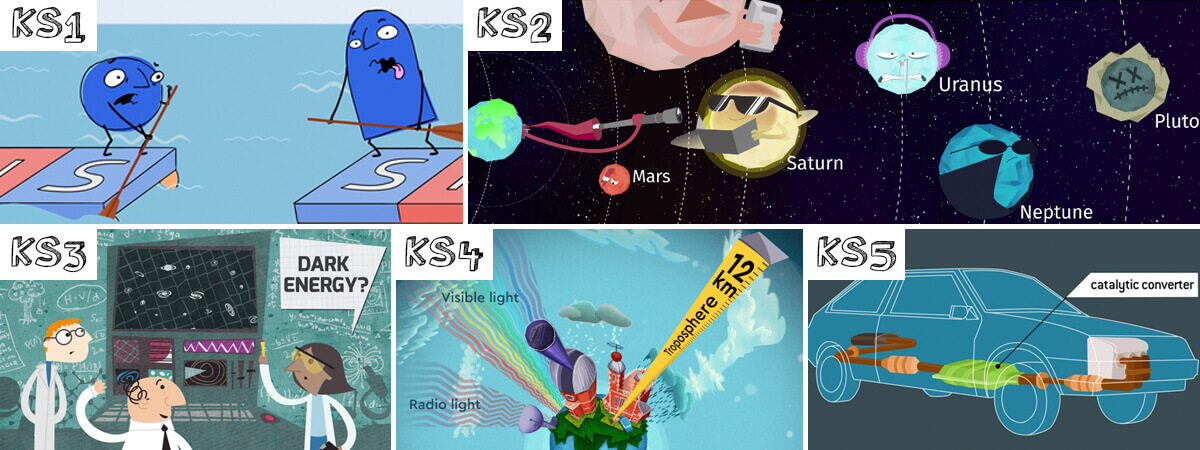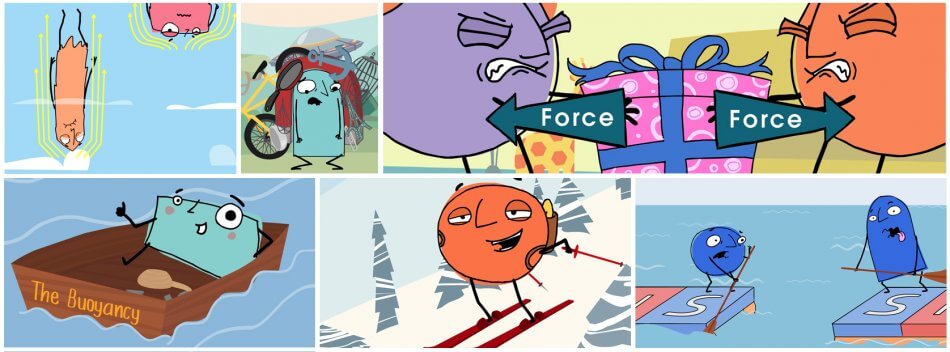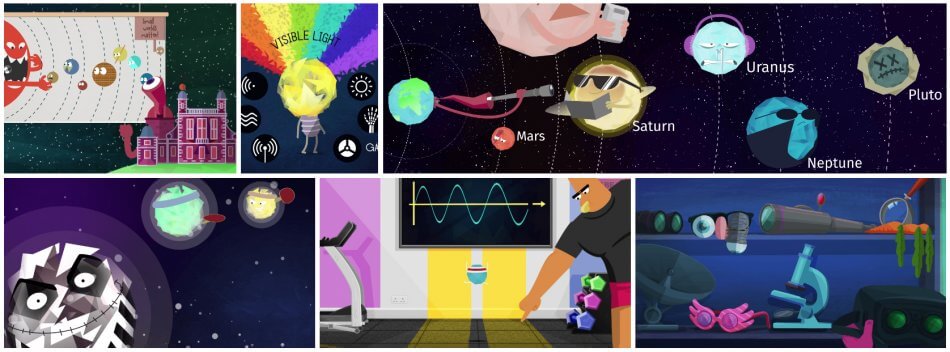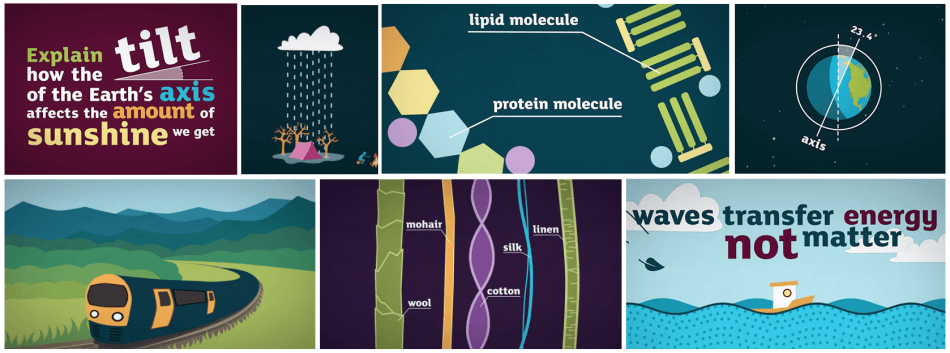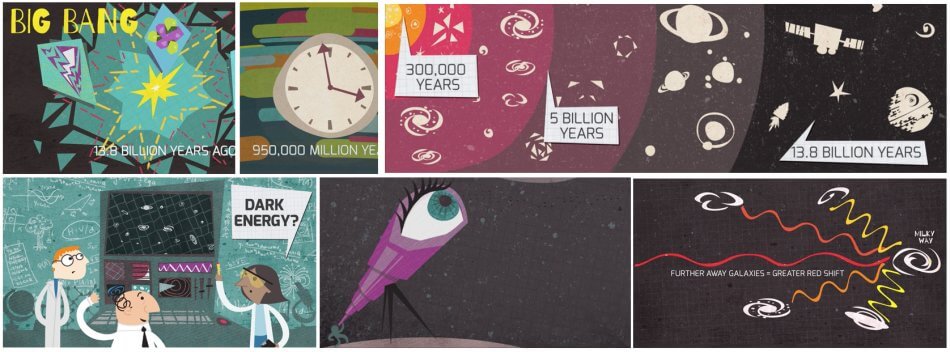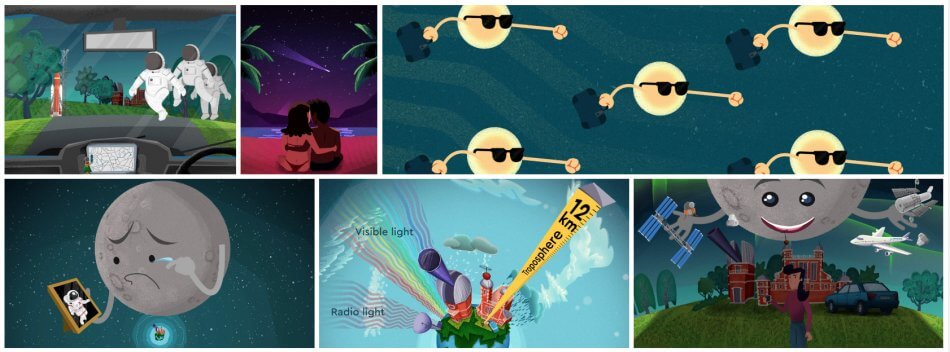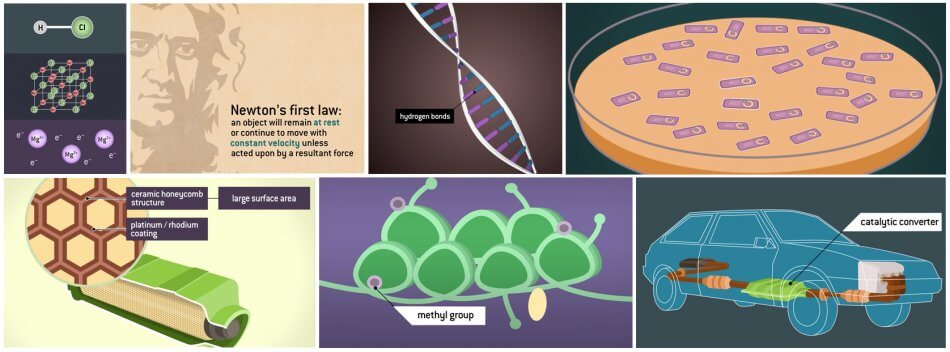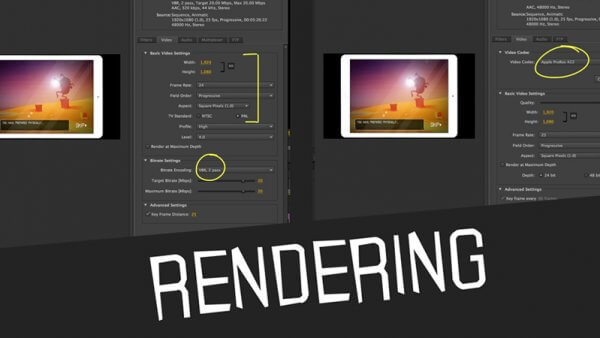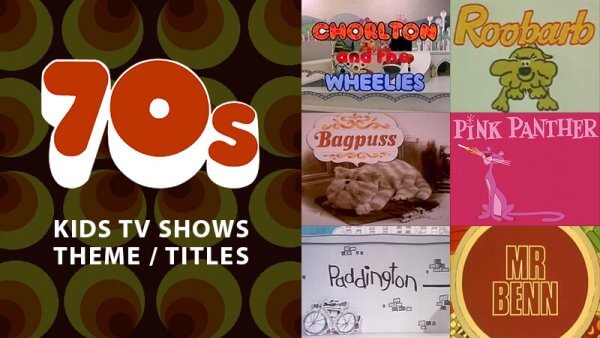Having recently completely our second series of animated films for the Royal Observatory Greenwich, we realised that we have now produced films on the subject of Science, aimed at each of the 5 key stages that make up the UK Educational System. This seems like a great opportunity to talk about the different requirements of producing educational content for each age group, and the challenges that we faced with each series of films.
Key stage 1 (5-7 years)
For BBC Bitesize, we created a series of explainer films to answer science based questions such as ‘what is a magnet’, ‘what is a force’ and ‘what is gravity?’, aimed at the KS1 audience. These films were part of our ‘extremely deadly conundrums’ series, where the long-suffering characters found themselves burnt to a crisp, dropped out of aeroplanes or flattened by a walrus on a regular basis, because there’s little a 7 year old enjoys more than gratuitous, cartoon-style violence.
At 5-7 years, children tireless absorb the world around them and question everything. They like rhyme, rhythm and seemingly endless repetition, and they will accept pretty much everything on face value without questioning or looking for the logic behind it. For this age group, we make educational films that are non-stop fun, with a silly, slapstick sense of humour, and where the learning is incidental. The educational content will be inherent in the set up of each film; the characters needs to learn about gravity, forces or magnets in order to not get squished or eaten by a bear, and the child can see a real world – if absurdly extreme – example of where that knowledge might be useful.
Although the pace of the story can be quite fast for this already media savvy audience, the pace of the learning outcomes must be slow, clear and repeated throughout the film before they will fully grasp it.
Key stage 2 (7-11 years)
Our first series of films for the Royal Observatory included films aimed at the KS2 audience, such as ‘Story of Stars’. These were each themed around a question that was regularly asked of the Observatory staff – in this case; ‘Will our sun live forever?’
For the 7-11 age group, we make sure our films are fun, funny and frenetic. The educational content is still woven in to a narrative, but that narrative is now a little less obvious and more closely related to the subject matter.
At KS2, children are no longer as instantly curious about everything they see, and can start to feel patronised quickly if they feel they’re being taught something boring – or that they already know. This means they need to see information presented in a new and interesting way, and must able to relate that information to their own lives in order to fully engage with it.
This audience love feeling clever, so background jokes, ‘fascinating facts’ or new bits of information that they can talk about afterwards are great ways of helping them remember. They should be left with both answers and further questions that will foster conversation with a teacher, parent or friend, rather than having everything spelt out for them.
They like slapstick and grossness and can appreciate verbal comedy like sarcasm and irony. They know enough about the reality of the world to enjoy wacky, surreal ideas and irreverent humour – and the occasional fart gag rarely goes amiss.
Key stage 3 (11-14 years)
For Oxford University Press, we created a series of 30 films for the KS3 audience (which are available on Kerboodle, the digital teaching and learning service). As this series was designed purely to educate rather than entertain/inspire, the content needed to be curriculum based and highly focused.
At this age, what kids need most is a way to contextualise science; to see how it affects them and the world around them. Ideally, this is done by presenting the information as the answer to a question, such as ‘what happens to candle wax when it burns away?’ or ‘why do I have eyes like my Mum, but ears like my Dad?’
KS3 students are better able to separate work and play, and they will accept educational content without the need to sugarcoat it in a story, or to anthropomorphise the world – in fact, they can quickly feel patronised by this device. The large amount of content that schools need to cover during these years means that the pace of learning for this age group is significantly faster – this makes it essential that the educational outcomes are explained clearly, simply and concisely.
Generally, films aimed at this age group should be paced to meet the needs of the stronger students, safe in the knowledge that struggling students can pause, rewind and re-watch the film as often as they need. As different students absorb information using different learning styles, educational films should also utilise a variety of techniques throughout to present that information:
- A clear, succinct voice over that would work alone should the student be visually impaired
- Strong, easy to understand visuals that move accurately but not excessively, that would similarly work alone should the student be hard of hearing
- Information presented as text on screen – this should pass size and colour palette requirements for visually impaired students, and be onscreen long enough for all students to read and absorb it.
- A clearly labelled summary to recap the important information
- Closed caption subtitles
Key stage 4 (14-16 years)
For the GCSE audience we have produced too many films for me to pick a favourite, so I’ve divided the category up in to curriculum based and non-curriculum based films:
Curriculum based films for GCSE:
For BBC Learning , we produced “Theories of the Universe’ which perfectly encapsulates the fun, engaging and edgy style that appeals to the young adult audience.
The film uses a clean and precise ‘infographic’ style of animation, which removes any extraneous details and focusses on exactly the information that the audience needs to understand at each point. This works well for an audience that has specifically chosen to watch the film, and helps to demystify complicated ideas.
With so much information to remember at this age group and with the pressure of exams looming, it is vital that they see the link between the film and the curriculum. Subjects that in the 11-14 age group may have been titled ‘Why is it a bad idea to go camping in winter?’ would now be delivered as ‘How the Earth’s position in relation to the Sun affects the seasons’.
Non-curriculum based films for 14-16 year olds:
For the Royal Observatory Greenwich, we created a series of films answering questions about the Universe, including ‘Where does Space begin’. These films are not based around a specific curriculum, but are designed to feed the audience’s thirst for knowledge and to inspire a sense of awe of the Universe.
At this age, students need to see passion, enthusiasm and detailed research. They expect to be both informed and inspired by a film, much more than they expect to be entertained, so we use more subtle, background elements that add to the humour and enjoyability of a film, without distracting from each scene’s learning objective.
We generally stay away from anthropomorphising the world at 15-16, although the audience is a little more open to it than they are at KS3, so long as they fit the tone of the film and contribute to the understanding of the science.
Key stage 5 (16-18 years)
By the time students get to A Level, they have above average expertise in a subject (and frankly above the level of most of us here in the studio, hence the long roster of Educational Consultants and script writers that we work with). For this audience, films are highly technical and entirely curriculum driven, like our series of films for Oxford University Press
This age group requires a detailed, precise diagrammatic style of animation, animated to enhance understanding rather than to add humour, character or story.
We have made our films fun, funny, fast, engaging, vibrant, emotional, quirky, different and irreverent – all while delivering the required curriculum. If you would like to contact us about our educational films or would like to discuss a project with us, we would love to hear from you and you can contact us here.
